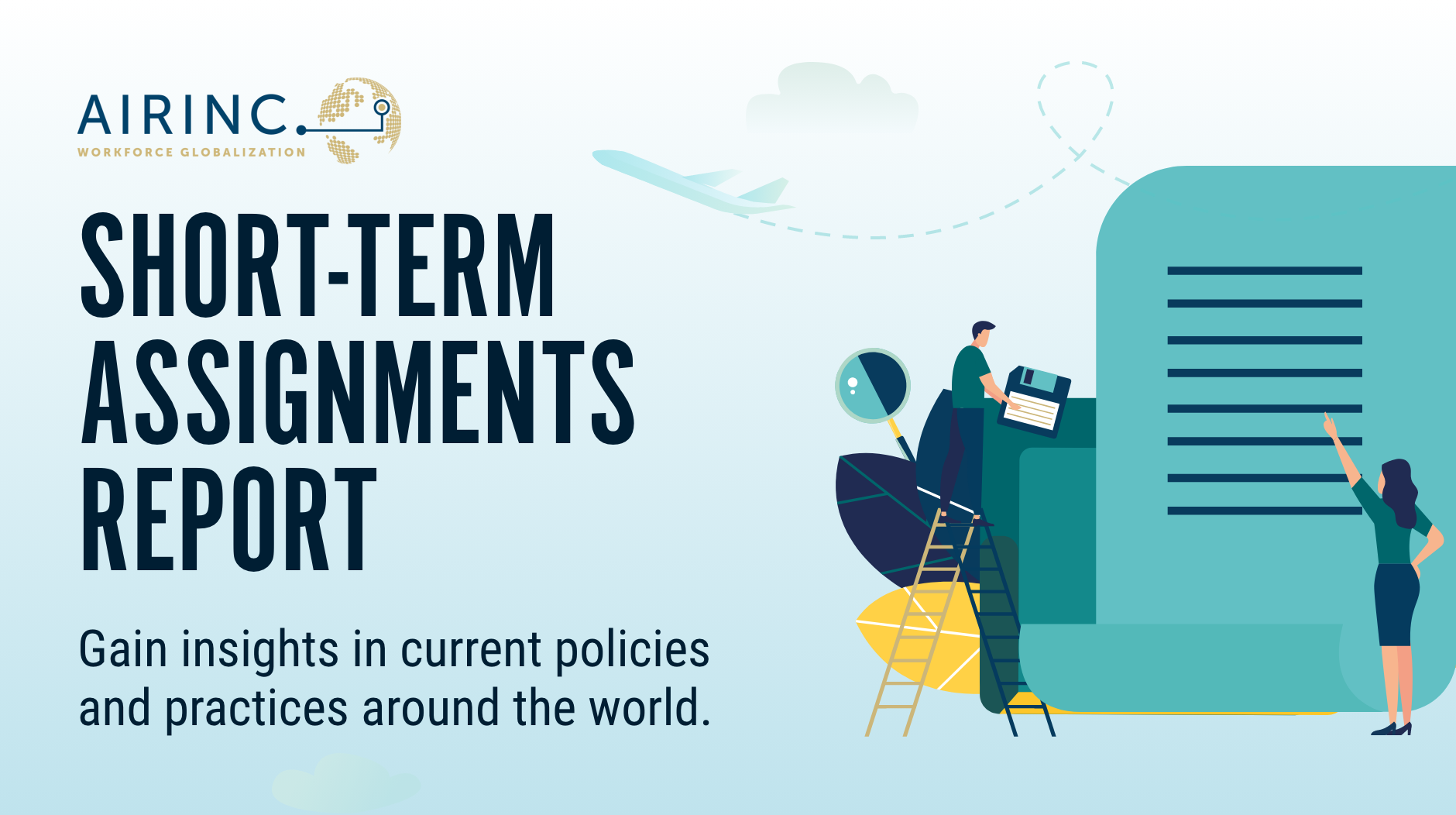Short-term assignments (STAs) have emerged as a fundamental policy in global mobility.
Their shorter duration and simplified administration make them a go-to choice for various use-cases, from project-based work to skills transfer and developmental purposes. AIRINC's in-depth policy and practice benchmark sheds light on the evolving landscape of short-term assignments, revealing key insights into their usage and challenges.
- Anticipated Growth: According to the benchmark, 45% of companies foresee an increase in the use of STAs, while 41% expect the numbers to remain stable in the coming year. This shows the long-lasting importance of STAs as a foundational policy for deploying global talent swiftly and efficiently.
- Diverse Usage: The survey highlights the multifaceted nature of short-term assignments, with 92% of companies using them primarily for project-based work. However, other significant purposes include knowledge or skills transfer (69%), early career or developmental initiatives (48%), and promoting career growth through international experience (44%). This diversity underscores the adaptability of STAs to meet a range of organizational needs.
- Assignment Extensions: Problems with assignments being extended were found by 45% of organizations as a significant obstacle. This highlights the need for clear assignment parameters and effective communication to prevent unintended extensions that may impact budgets and planning.
In conclusion, short-term assignments are still a vital aspect of global talent deployment, offering flexibility and cost-effectiveness for organizations. As they continue to evolve, understanding and addressing challenges will be key for organizations to optimize the benefits of short-term assignments in the dynamic landscape of global mobility.
Looking for Commuter Survey Highlights? Click here.







%20(37).png)

